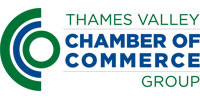Sales agents, wholesalers and other kinds of sales distributors can be a very effective channel for selling to your end customers. An established sales agent or distributor can give you immediate access to your target market without the need to build your own sales presence from scratch.
A sales agent or wholesaler can also be useful if you're trying to break into a new market - for example overseas - where you don't have experience and expertise.
Should you use a sales agent or a distributor?
Whether an agent or a distributor is best for you depends on your circumstances and what you are trying to achieve. You need to consider:
- Which agents or distributors already have access to your target customers.
- Your existing operations, and how the new intermediary will fit in. For example, if you have an existing sales operation (such as a sales force, telesales team or online sales), you will need an intermediary who is happy to work alongside that.
- What rights and responsibilities you want to be included in your agreement with the intermediary.
- How closely do you want to be involved in the sales process? It can be easier to have more control over how an agent handles sales.
- What type of relationship you want with your end customer. Using a distributor may distance you from the ultimate customer.
Agents are often preferable for making high value, complex or bespoke sales. You will also need to use an agent if you want to sell a service which must be delivered. Distributors, such as wholesalers, are often used for making lower value sales of relatively straightforward products.
Finding agents and distributors
Your sales pitch to a sales agent or distributor needs to be based on what you can offer them. You need to convince them that it will be worthwhile representing or stocking your product (or service). Key issues include:
- how easy it will be for the sales agent or distributor to sell your product or service
- how profitable sales will be for them
- what you can add to their business - for example, how your product fits into a wholesaler's existing range
- what quality of service you will provide to them - for example, reliably supplying the volume and quality of product they need
The benefits your product offers to the end customer are only of indirect importance - in terms of making your product easier for the sales agent or distributor to sell.
Contracts and legal obligations will be an important part of any agreement you reach. If you use a sales agent, you may be liable for their actions and have legal obligations towards them, particularly if you're working with self-employed agents. Agreements with sales distributors must avoid falling foul of rules on anti-competitive behaviour.
Using your sales agents and distributors
Actively managing your agents and distributors is a vital part of getting the best results from them. Regular communication is essential. Keep them up to date with product information and sell the benefits to them of any new initiatives you want them to be involved with.
Relationship building typically includes regular visits - for example, inviting wholesalers to visit your factory, or meeting with sales agents to discuss sales plans and any concerns they have. Other kinds of support can include product training, joint promotions with distributors and so on.
Practical logistics can have a major impact on your relationship and sales success. Sales agents and distributors soon become disenchanted with suppliers who let them and their customers down. They are entitled to expect the kind of customer service you would give to any major customer.
